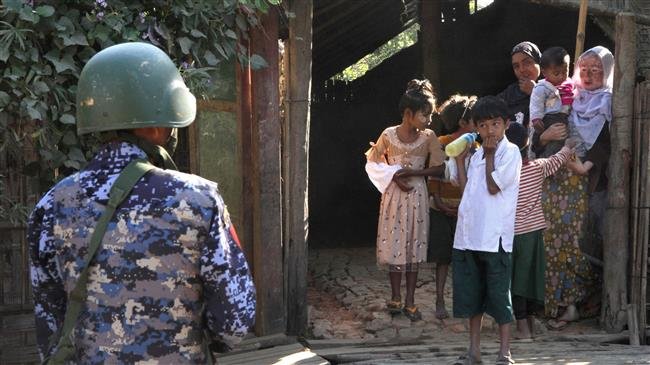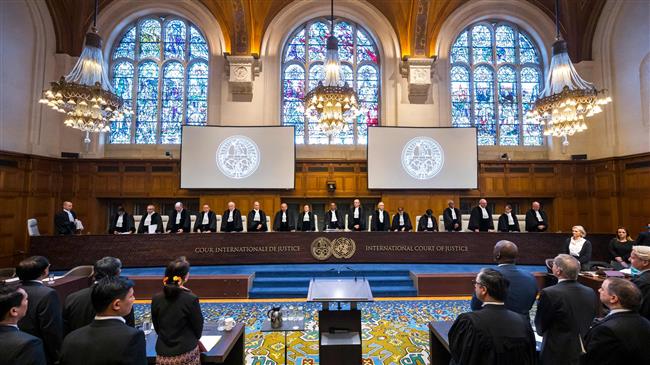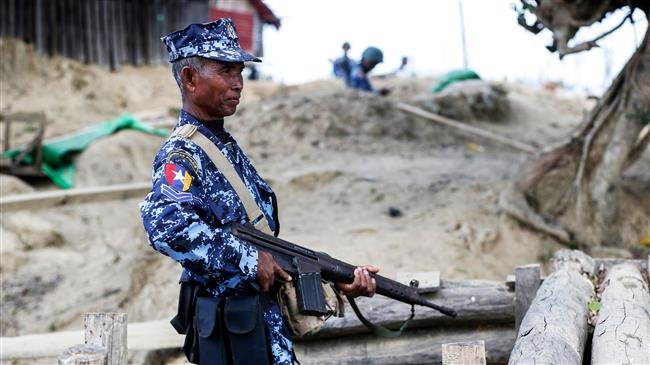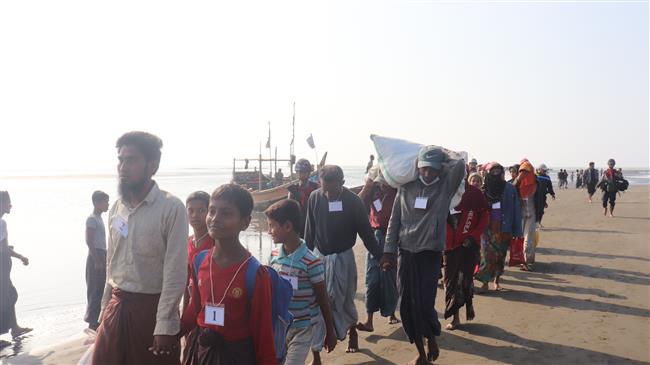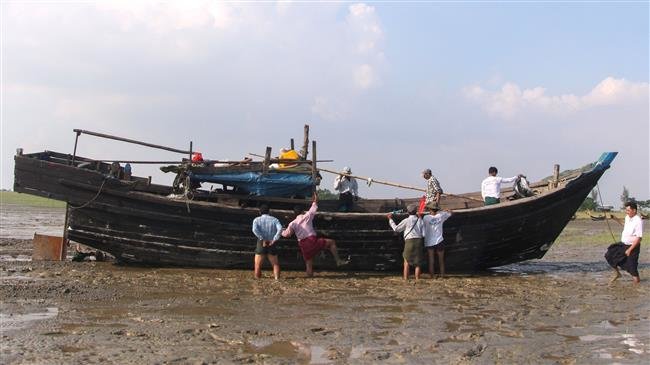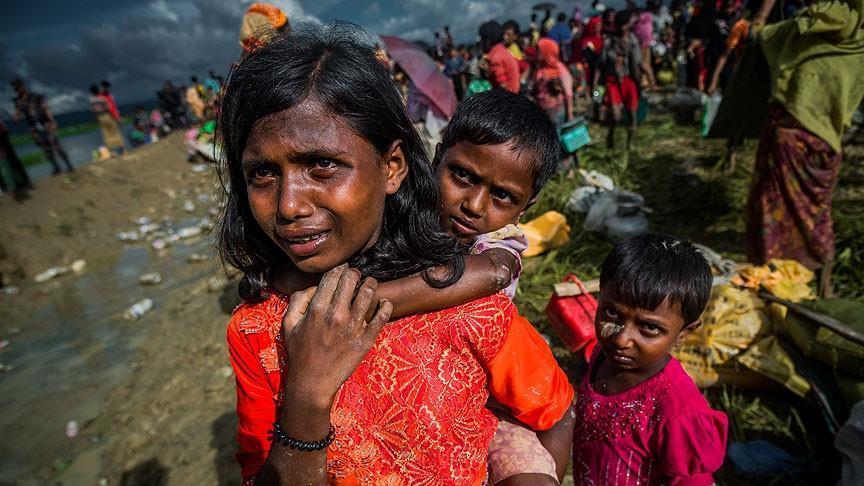The United Nations (UN) has urged Myanmar to implement the recommendations of a panel on the Rohingya crisis that was led by a former UN head, the late Kofi Annan, including ensuring freedom of movement and access to education for children from the persecuted Muslim minority.
Publish dateTuesday 29 January 2019 - 00:34
Story Code : 178746
AVA- Speaking at a forum in the Myanmarese capital, Naypyidaw, on Monday, the head of the UN’s Children’s Fund, UNICEF, Henrietta Fore, gave a bleak assessment of the outlook for Rohingya children in Myanmar and the larger number of them who have fled with their families to neighboring Bangladesh.
Fore said the refugees, who have fled state-sponsored violence in Myanmar, faced risks and those still in Myanmar lacked access to proper education.
She said the Rohingya children were living “a precarious and an almost hopeless existence” in camps in neighboring Bangladesh. Myanmar, she said, was yet to create the right conditions for the return of the refugees from Bangladesh.
“We urge that the necessary steps are taken to enable their safe, voluntary, and dignified return back to their homes, where their rights are respected and they can once again live peaceably with their neighbors,” said Fore, adding, “Taking these steps will also go a long way towards creating the right conditions for the return of refugees from Bangladesh.”
In August last year, UNICEF said thousands of Rohingya Muslim children lacked proper education both in Myanmar and in the border camps in Bangladesh, warning that the Myanmarese kids could become “a lost generation.”
The Annan commission was created in 2016 to find long-term solutions to the deep-seated ethnic and religious divisions in Myanmar’s western Rakhine State, where most of the minority Rohingya Muslims were concentrated before state-sponsored violence began against them in November 2016. Annan died in August last year.
The commission’s recommendations included points urging the government to “immediately expand primary education to the communities in... Rakhine..., and intensify efforts to ensure that teachers assigned to Muslim villages resume their work, including by providing adequate security when necessary.” It also called on authorities to “ensure that all children in the state have access to education in Myanmar language” and that the tertiary education access is expanded.
But the implementation of the recommendations has been impeded, not just because most of the minority Muslim children are out of the country but also because their home villages — and schools — have been razed by the Myanmarese government to make room for Buddhists who have been shuttled by the government to repopulate the area and change its demography.
The violence against the Rohingya — carried out by military soldiers and Buddhist mobs — intensified in August 2017. Thousands of Muslims were killed, and more than 700,000 others survived only by fleeing to neighboring Bangladesh.
In October 2018, Bangladeshi and Myanmarese government officials announced that they had struck a “very concrete” repatriation deal for the return of the Rohingya Muslims. The refugees, and rights activists, however, fear that violence awaits them back home.
The UN has appointed a special envoy for Myanmar, Yanghee Lee, who said on Friday that for the repatriation to happen, “the perpetrators [of the crimes against the Rohingya] must be held to account.”
Fore said the refugees, who have fled state-sponsored violence in Myanmar, faced risks and those still in Myanmar lacked access to proper education.
She said the Rohingya children were living “a precarious and an almost hopeless existence” in camps in neighboring Bangladesh. Myanmar, she said, was yet to create the right conditions for the return of the refugees from Bangladesh.
“We urge that the necessary steps are taken to enable their safe, voluntary, and dignified return back to their homes, where their rights are respected and they can once again live peaceably with their neighbors,” said Fore, adding, “Taking these steps will also go a long way towards creating the right conditions for the return of refugees from Bangladesh.”
In August last year, UNICEF said thousands of Rohingya Muslim children lacked proper education both in Myanmar and in the border camps in Bangladesh, warning that the Myanmarese kids could become “a lost generation.”
The Annan commission was created in 2016 to find long-term solutions to the deep-seated ethnic and religious divisions in Myanmar’s western Rakhine State, where most of the minority Rohingya Muslims were concentrated before state-sponsored violence began against them in November 2016. Annan died in August last year.
The commission’s recommendations included points urging the government to “immediately expand primary education to the communities in... Rakhine..., and intensify efforts to ensure that teachers assigned to Muslim villages resume their work, including by providing adequate security when necessary.” It also called on authorities to “ensure that all children in the state have access to education in Myanmar language” and that the tertiary education access is expanded.
But the implementation of the recommendations has been impeded, not just because most of the minority Muslim children are out of the country but also because their home villages — and schools — have been razed by the Myanmarese government to make room for Buddhists who have been shuttled by the government to repopulate the area and change its demography.
The violence against the Rohingya — carried out by military soldiers and Buddhist mobs — intensified in August 2017. Thousands of Muslims were killed, and more than 700,000 others survived only by fleeing to neighboring Bangladesh.
In October 2018, Bangladeshi and Myanmarese government officials announced that they had struck a “very concrete” repatriation deal for the return of the Rohingya Muslims. The refugees, and rights activists, however, fear that violence awaits them back home.
The UN has appointed a special envoy for Myanmar, Yanghee Lee, who said on Friday that for the repatriation to happen, “the perpetrators [of the crimes against the Rohingya] must be held to account.”
Source : خبرگزاری Afghn Voice Agency(AVA)
avapress.net/vdcc04qse2bqmm8.-ya2.html
Tags
Top hits
